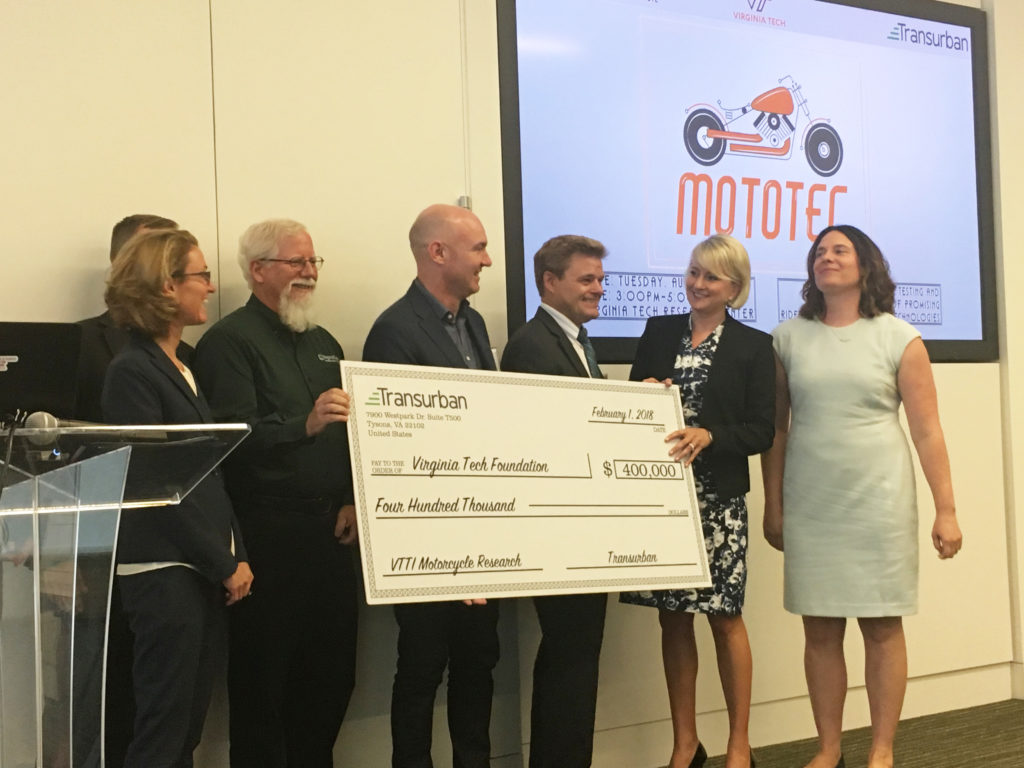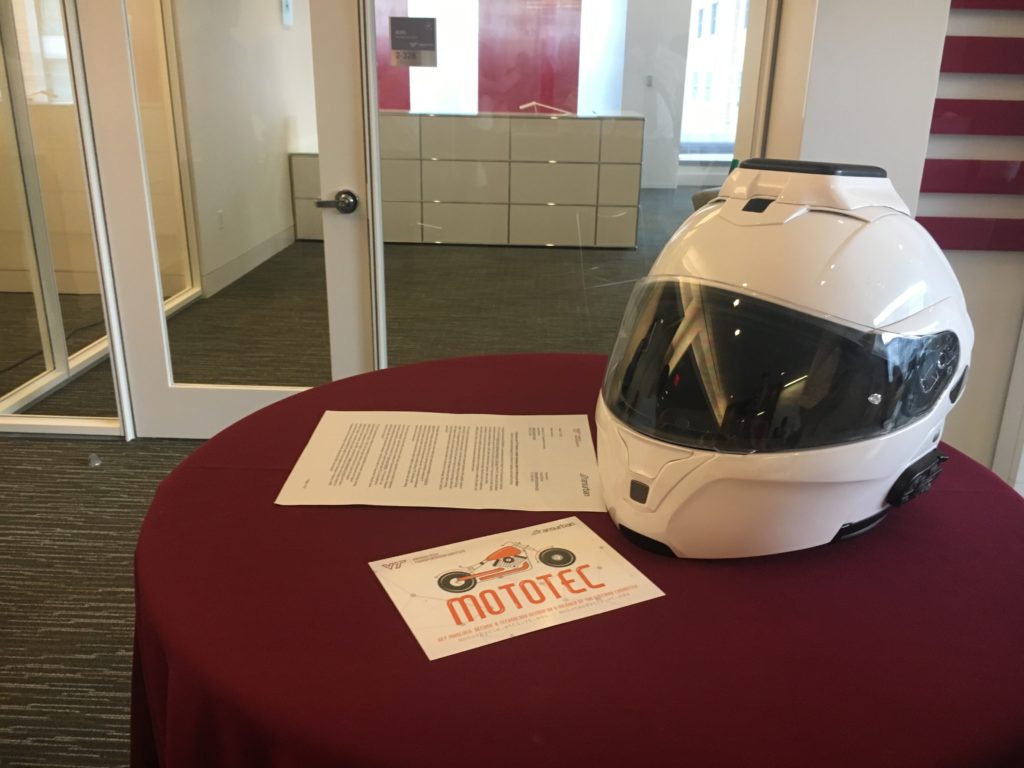Motorcycle riders represent just a small portion of traffic on the roads, but they’re consistently involved in more fatal accidents than anyone else — some researchers at the Virginia Tech Transportation Institute are looking to change that.
VTTI is teaming up with Transurban, the company building and operating toll lanes on Northern Virginia’s busiest highways, to try and spur the development of new technology to make the roads safer for motorcyclists.
Transurban announced at Virginia Tech’s Ballston research center yesterday (Tuesday) that it would be donating $400,000 to VTTI to kick off the “Motorcycle Technology Evaluation Challenge,” known as “MotoTEC.”
The goal is to pair small technology companies and startups working on devices and software that could be used for motorcycle safety with some needed funding and, perhaps more importantly, the expertise of Virginia Tech’s researchers. VTTI hopes to find some promising technology to test along Transurban’s express lanes on highways like I-495 and I-95, giving it a big boost in making it to market.
“This is all about: What can get on the road fastest to make the most impact?” said Andy Schaudt, project director for VTTI’s motorcycle research group.
Schaudt says the current challenge for tech companies looking to make motorcycles safer is that many have gone overlooked, even amidst the global embrace of “connected cars.” After all, he points out that “there aren’t a lot of places to put sensors” on a motorcycle.
That’s where MotoTEC can come in. Schaudt hopes to convene a steering committee made up of transportation researchers and industry experts alike to evaluate technology with potential, then put out a call to companies looking for a boost.
He expects to hold a “pitch competition” if VTTI gets enough of a response, and he hopes to “keep the funnel wide” in accepting all manner of technologies as possibilities. Jennifer Aument, president of Transurban North America, suggested that solutions could include things like a system to connect a rider’s helmet to road sensors or technology to somehow make work zones safer for motorcyclists.
“It’s about finding something with a big impact,” Aument said. “Our single focus is on how to save lives.”
Depending on what technology wins out, Schaudt said testing could start as soon as this fall. Should it need a little more time to develop, however, he said VTTI could instead wait for the next “riding season” to start next spring.
No matter the exact timeline, Schaudt says the goal is that “within one year of program starting, we want results ready to share.” He noted that testing out the efficacy of various technologies can often be “extremely expensive” for small companies, and he thinks VTTI can play a big part in making that process a lot smoother.
“This all goes towards expediting deployment,” Schaudt said. “If they have the right support, they can start putting it on roadways and benefitting motorcycle riders right away.”
Aument added that the research work could even have a more immediate impact along the highways Transurban is working on.
With construction on the I-395 toll lanes picking up in earnest, necessitating work zones that become especially dangerous for drivers and motorcyclists alike, she said her company would be eager to embrace any low-tech solutions VTTI proposes to improve signage or lane markings and make everyone safer on the roads.
“We’re looking for solutions in our work zones right away, so if they find something interesting, we want to hear about it,” Aument said.



